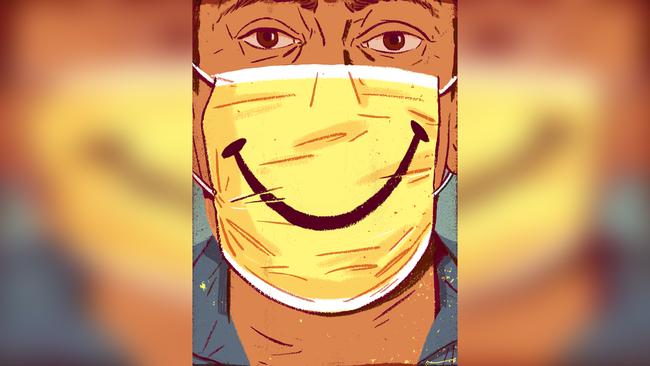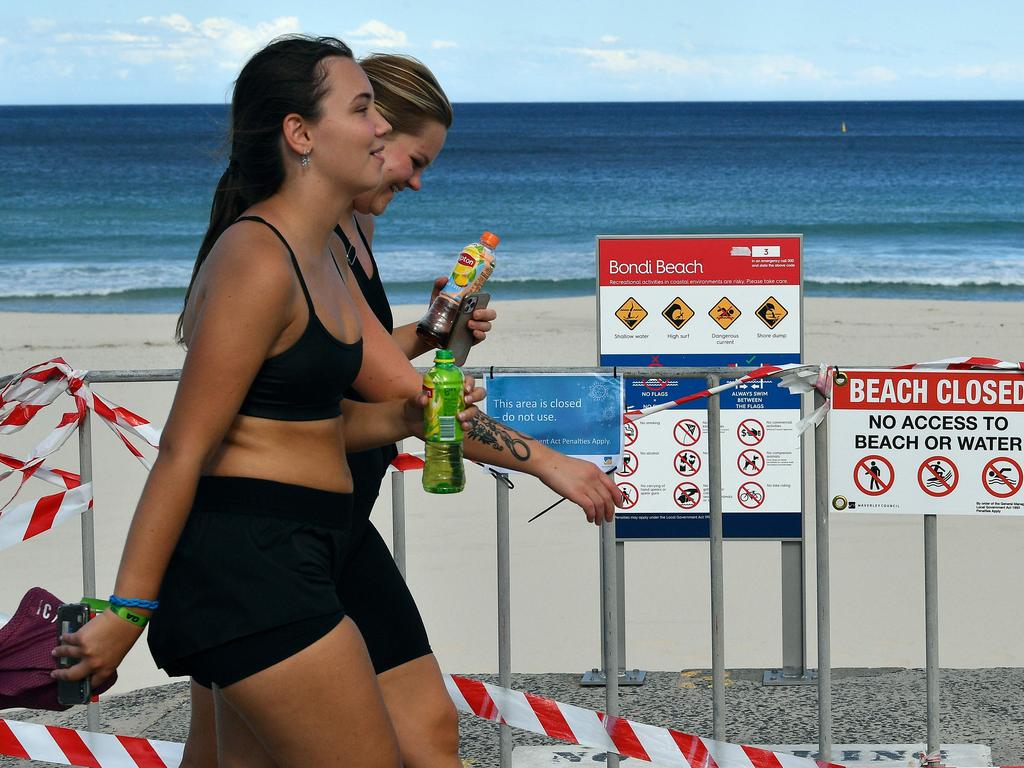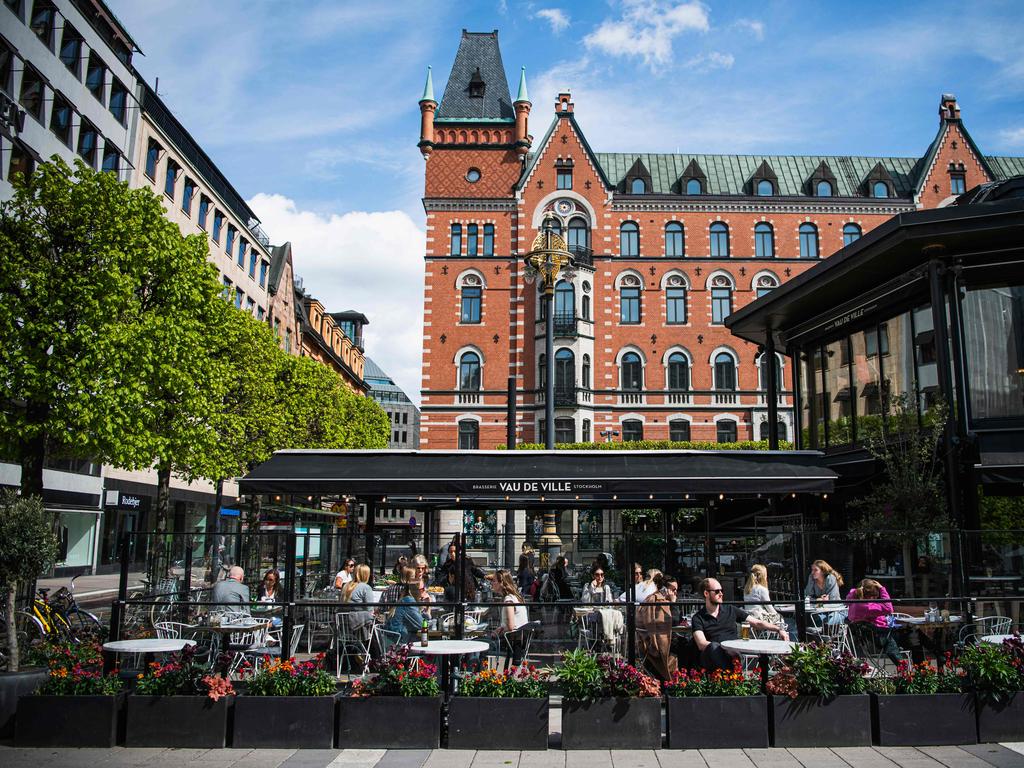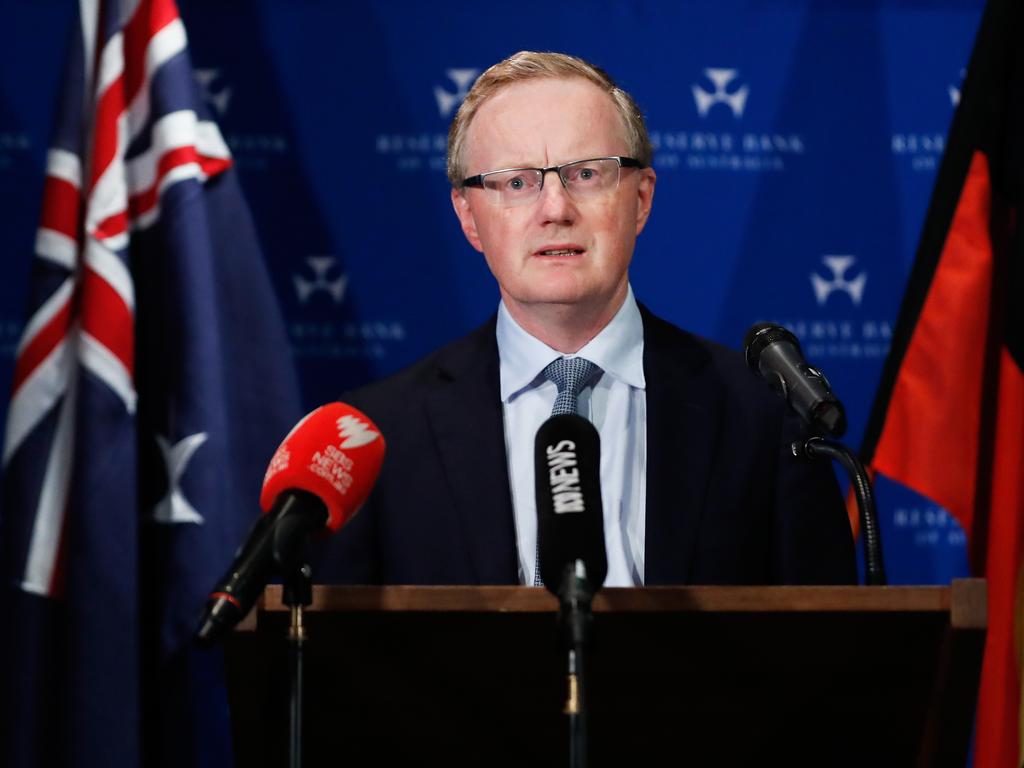Coronavirus Australia: While an elite few savour the serenity, costs mount
If there’s a silver lining to lockdowns it’s that businesses will become more efficient.

“I’m in construction doing government jobs that haven’t stopped, childcare for the kids is now free, petrol is cheap and traffic is better than it’s been for years and my commute time has roughly halved to 40 minutes,” he said. “I’m not minding the lack of social interaction, to be honest,” he added.
For those who managed to maintain their incomes throughout, lockdown has had its upside.
For a start, the outright deflation the Reserve Bank has forecast — 1 per cent over the year to June — means some of us might enjoy greater purchasing power even without a pay rise.
I confess lockdown did have a certain ascetic appeal. Opportunities to waste money at restaurants and bars were drastically curtailed, boosting saving. Overpriced scrambled eggs for breakfast on the way to work were out; porridge at home, at less than a tenth the cost, was in.
As a runner, the closure of gyms didn’t bother me. Pointless face-to-face meetings evaporated, saving hours. I only saw people I actually wanted to see; small talk ended.
And for those of us who can work from home, lockdowns, somewhat ironically, have given us greater freedom to structure our work around our lives, rather than the other way around.
For young lawyers and bankers — no one ever cared about “face time” in journalism — the quality of their work will matter more than how many hours they spend at their desk.
Of course, lockdowns have caused extraordinary economic damage. These sorts of benefits have tended to flow to a fortunate minority, especially public servants and corporate elites.
James Stratton, an Australian economist at Harvard, recently estimated that about two-fifths of jobs in Australia could be performed at home, and not all of them well. “Lower-income Australians, less-educated Australians, and rural Australians are more likely to be in occupations that cannot feasibly be performed from home,” he said,
“High-wage employees are three times as likely to be able to work from home as low-wage workers,” Labor MP and former economics professor Andrew Leigh noted last month.
News last week that 7.6 million people, excluding 2 million-odd public servants, are dependent in full or part on the government for their income highlights how much damage mandatory lockdowns can do.
The costs of the lockdown, including joblessness and associated social and economic pain, both during and after, will fall mainly on the young and less educated.
New analysis by economists at New York University released last week found lockdowns were likely to induce an L rather than a V-shaped recession, because of “long-lasting negative effects on unemployment”.
They found the “lockdown disproportionately disrupts the employment of workers who need years to find stable jobs”.
Some argue that states and nations such as Sweden that resisted mandatory lockdowns have received little economic dividend because their economies have been hit hard anyway.
“Private decisions to avoid social interactions in response to the epidemic would have reduced demand for activities like retail, air travel, hotel rooms, and on-site restaurant meals,” six US economists argue in a paper that finds jobless claims started to surge before states enacted shelter-in-place orders.
It’s no surprise that Sweden, or less draconian US states, will suffer economically given they are surrounded by seriously disrupted economies.
More troublingly, these arguments seem to place zero value on freedom. Being able to sit on a park bench doesn’t show up in gross domestic product, but it’s valuable nevertheless. Being under house arrest for six weeks, as New Zealanders were, is an impost far beyond GDP.
Over the weekend the Queensland Premier, on what must be threadbare justification, said she wouldn’t open the border with NSW. Again, that will affect lives far beyond what they would have been willing to pay for plane tickets or petrol.
But we are where we are. If there’s a serious silver lining to lockdowns it’s that businesses, especially large ones, will become more efficient, freeing up resources. That spells lay-offs, which will be painful for the workers concerned, but ultimately beneficial if they end up engaged more productively than pushing up costs at a bank or utility, causing higher prices ultimately for everyone else.
The long period of having staff work at home — seemingly successfully — was an experiment that would otherwise not have been conducted.
Twitter has told its global workforce of 5000 they can work from home indefinitely. Expect banks to shrink their footprint to save on rent. Big business will slash spending on information technology too. For seven weeks almost none of it was necessary, as employees used their own.
Circumstances will force savings in any case, given big firms have in effect been excluded from JobKeeper (because of the tougher eligibility requirement of a 50 per cent revenue downturn) and their revenue is likely to fall along with economic activity.
For smaller businesses the wage subsidy is working in the opposite direction, keeping enterprises afloat that would have folded sooner, and probably still will once the payments cease.
For years, chief executives of large corporations have been banging on about the importance of being agile. Insofar as that means to operate more efficiently, the coronavirus crisis has made it an urgent priority.








A couple of weeks back an old school friend called, roused by arguments I’d been making about the damage of national lockdowns.